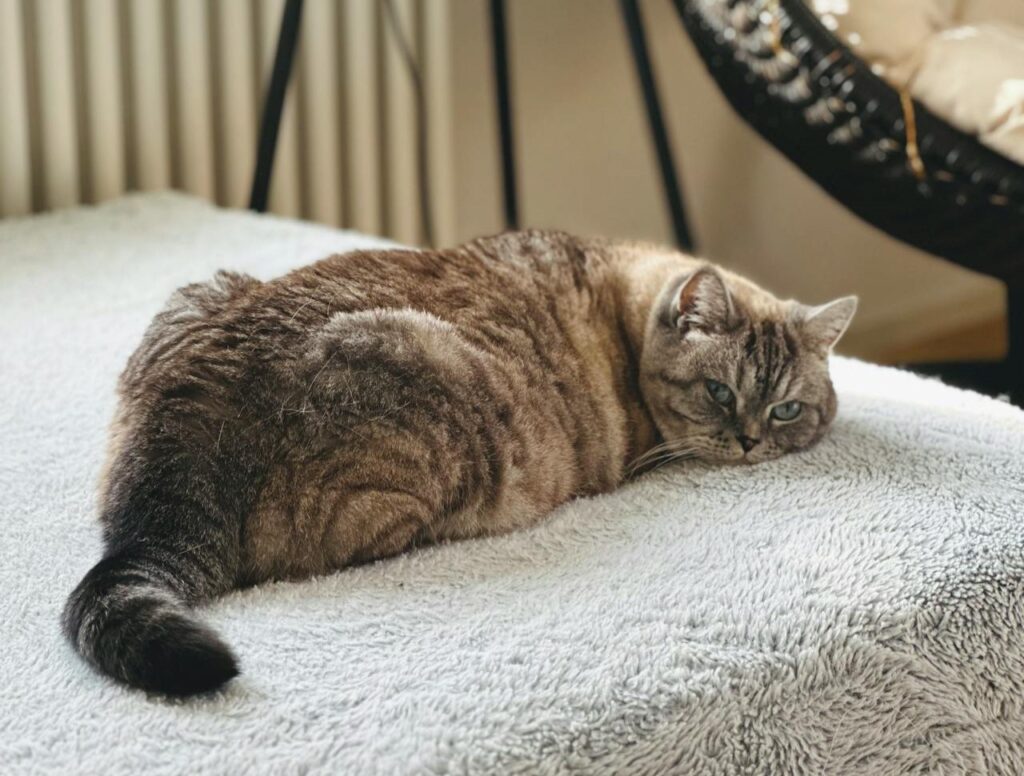While vomiting can be a regular occurrence in cats, it is not always normal and should be investigated.

Cats are known for their grooming habits and, sometimes, this leads to the occasional hairball. However, if you find your feline friend vomiting more frequently, it’s important to understand the potential causes and know when to seek veterinary care.
Causes of vomiting in cats
Vomiting in cats can be attributed to a variety of causes, ranging from minor issues to more serious health concerns. Some common causes of vomiting in cats include:
- Hairballs: It’s normal for cats to vomit hairballs occasionally due to their self-grooming, particularly long-haired cats.
- Dietary indiscretion: Cats sometimes eat things they shouldn’t, leading to stomach upset.
- Diet change: Sudden changes in diet can cause vomiting.
- Intestinal parasites and bacterial overload: Worms, other parasites and bacteria can lead to gastrointestinal distress.
- Toxins: Ingestion of toxic substances can cause vomiting.
- Underlying medical conditions: Illnesses such as kidney disease, liver disease, hyperthyroidism or diabetes can cause vomiting.
When to take a vomiting cat to the vet
While occasional vomiting may not be a cause for alarm, certain signs should prompt a visit to the vet:
- Frequent vomiting: If your cat vomits repeatedly in a short period, or more than once a week
- Blood in vomit or dark stools: This could indicate a more serious condition.
- Lethargy or pain: If your cat seems unusually tired or in pain.
- Diarrhoea or pale gums: These symptoms, combined with vomiting, warrant immediate veterinary attention.
If you’re concerned about your cat’s vomiting, book an appointment at your local Greencross Vets, speak to a WebVet, or visit your nearest emergency veterinary hospital.
What to do when your cat is vomiting
If your cat is vomiting, you can take the following steps to ensure their comfort and safety:
- Provide water: Ensure they have access to fresh water to prevent dehydration.
- Monitor them closely: Keep an eye on their behaviour and any additional symptoms. Pay attention to the colour, contents, consistency, and frequency of their vomiting.
- Feed a bland diet (if approved by your vet): Feed boiled chicken and rice short term, or a gastrointestinal diet recommended by your vet.

How to help your cat recover from a vomiting episode
Once your cat has stopped vomiting, you can help them recover by:
- Gradually reintroduce their normal diet. Start with small amounts and gradually increase the percentage of normal diet over 1-2 weeks.
- Medicating them according to your vet’s instructions. Only administer medications prescribed and approved by your vet.
- Encouraging them to drink water. Continue to offer water to keep your cat hydrated.
If you’re worried about your cat’s recovery, book them in for a check-over with your vet.

